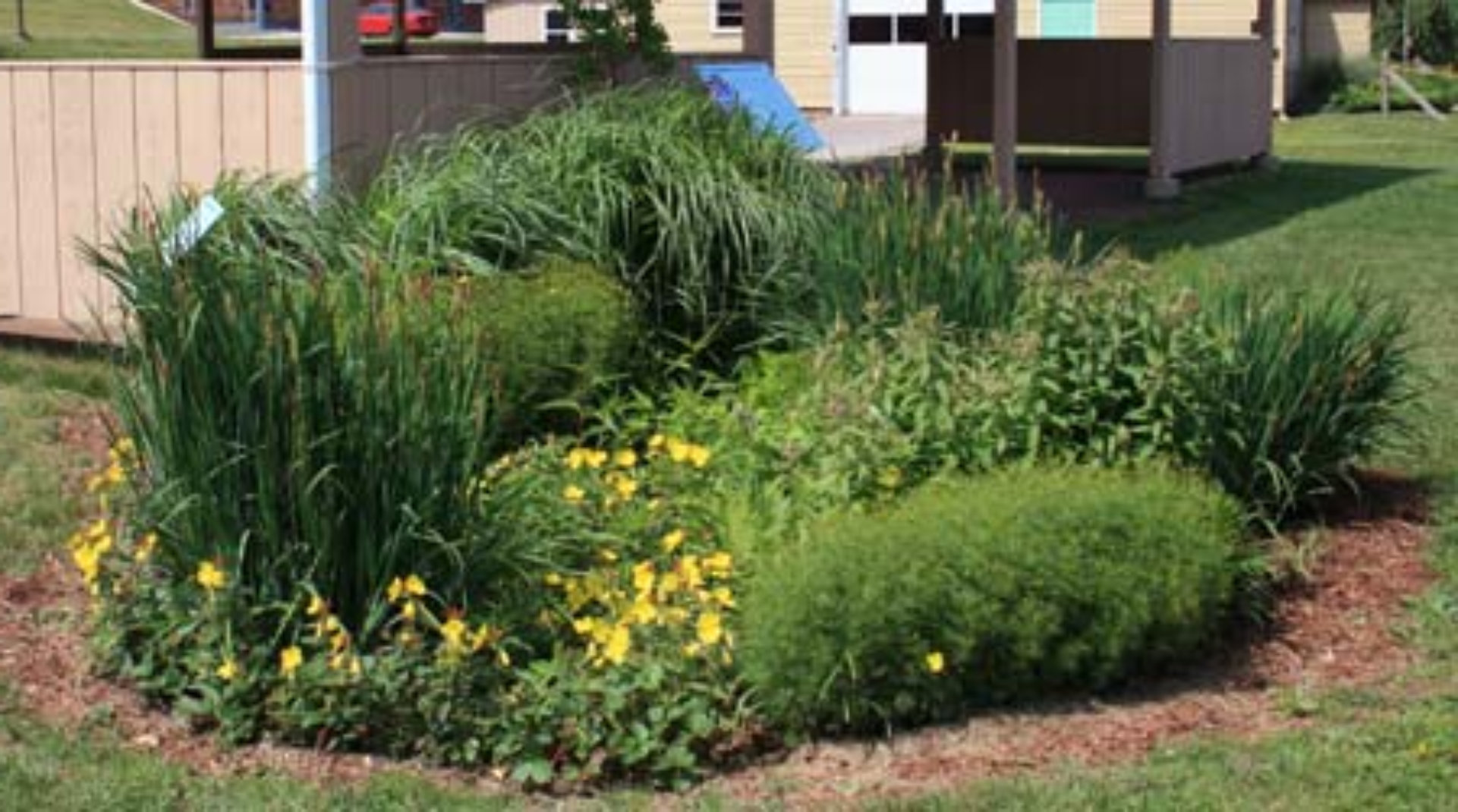
A Natural Filter
Rain gardens reduce water pollution while brightening the landscape. A rain garden is a shallow depression (about 6 inches deep) that collects runoff from a roof, driveway or yard and allows it to soak into the ground were pollutants can be absorbed by the soil. Rain Gardens are typically planted with shrubs or perennials, and can be colorful, landscaped areas in your yard that will also provide important environmental benefits.
Preventing Water Pollution
Every time it rains, water runs off hard surfaces such as roofs, driveways, roads and parking lots, collecting pollutants along the way and carrying them via storm drains to your local water body. This runoff has been cited by the United States Environmental Protection Agency (EPA) as a major source of pollution to our nation's waterways.
Benefits
* improve water quality
* reduce flooding
* recharge groundwater